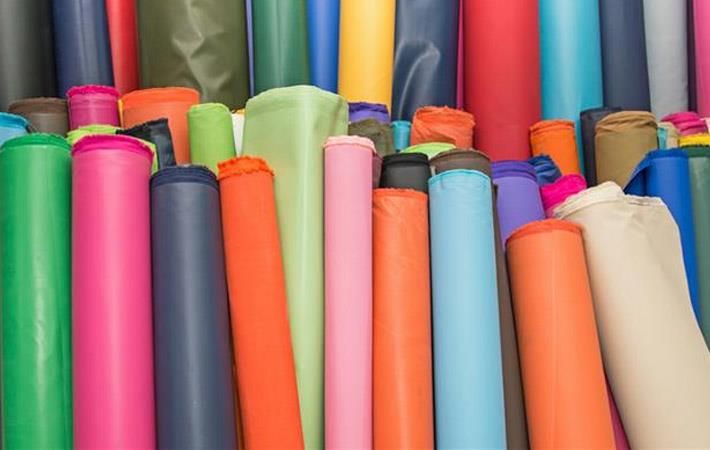Interviews
Mechanical Engineers Institution mark fabrics pollution
20 Sep '18
3 min read

Courtesy: Imeche
Each time an item of clothing is washed, up to 700,000 microscopic fibres are released which enter the oceans, are then swallowed by sea life and become part of the food chain, according to a new report by the Institution of Mechanical Engineers. The report has suggested urgent action like incentivising development of more environmentally friendly fibres.
The report calls for urgent action to prevent the six million microfibres released from a typical 5kg wash load of polyester fabrics from polluting oceans. It says that manufacturers and retailers need to tackle waste, including huge amounts of clothing going to landfill every year.
The report highlights that garment aftercare affects an item’s carbon footprint and advocates for individuals to wash their clothes at a lower temperature, use mesh laundry bags to catch threads, rely on tumble dryers less often or install filters on washing machine waste pipes.
Engineering Out Fashion Waste also highlights the extent to which fashion is a thirsty industry, one which contributes significantly to water pollution globally. It is also energy-intensive, producing 1.2 billion tonnes of carbon dioxide equivalent (CO2e) in 2015 – more emissions than international flights and maritime shipping combined.
The institution calls for urgent action to tackle the waste produced over the lifecycle of an item of clothing. This includes addressing water-intensive processes during manufacturing, such as removing excess dyes, and tackling the problem of disposing of a garment at the end of its life; three-fifths of all clothing produced is sent to landfill or incinerated within a year of being made.
Aurelie Hulse, lead author of Engineering Out Fashion Waste, said: “We need to build on existing industry initiatives and fundamentally rethink the way clothes are manufactured, right down to the fibres that are used. Garments should be created so they don’t fall apart at the seams and so that they can be recycled after they have been worn for many years. Fabrics should be designed not to shed microfibres when washed and industry needs look at how efficiencies can be made in the cutting process, which currently sees 60bn m2 of cut-off material discarded on factory floors each year.”
Dr. Jenifer Baxter, head of engineering at the Institution of Mechanical Engineers, said: “The garment industry is one of many industries that has a three-fold impact with emissions to air, water, and large amounts of waste produced for landfill and incineration. This means that to begin to create a sustainable fashion industry we need to address all of these areas and engineers are producing solutions that range from greater efficiency in machinery and water use to new materials with reduced shedding.”
“Given that it has been estimated that there are 20 new garments manufactured per person each year and that consumers are buying 60 per cent more than in 2000, these environmental implications must be addressed as a matter of urgency,” Baxter said.
"Engineering Out Fashion Waste" recommends three priority areas for action: The UK government, in collaboration with the fashion industry, should invest in initiatives which provide incentives for the development of more environmentally friendly fibres. The government should work with the fashion industry and manufacturers to develop a comprehensive framework to tackle "greenwashing" or false sustainability claims, and the government, fashion industry and manufacturers should support the development of mechanical and chemical fibre recycling technologies, particularly those which are able to separate blended fibres. (SV)
The report calls for urgent action to prevent the six million microfibres released from a typical 5kg wash load of polyester fabrics from polluting oceans. It says that manufacturers and retailers need to tackle waste, including huge amounts of clothing going to landfill every year.
The report highlights that garment aftercare affects an item’s carbon footprint and advocates for individuals to wash their clothes at a lower temperature, use mesh laundry bags to catch threads, rely on tumble dryers less often or install filters on washing machine waste pipes.
Engineering Out Fashion Waste also highlights the extent to which fashion is a thirsty industry, one which contributes significantly to water pollution globally. It is also energy-intensive, producing 1.2 billion tonnes of carbon dioxide equivalent (CO2e) in 2015 – more emissions than international flights and maritime shipping combined.
The institution calls for urgent action to tackle the waste produced over the lifecycle of an item of clothing. This includes addressing water-intensive processes during manufacturing, such as removing excess dyes, and tackling the problem of disposing of a garment at the end of its life; three-fifths of all clothing produced is sent to landfill or incinerated within a year of being made.
Aurelie Hulse, lead author of Engineering Out Fashion Waste, said: “We need to build on existing industry initiatives and fundamentally rethink the way clothes are manufactured, right down to the fibres that are used. Garments should be created so they don’t fall apart at the seams and so that they can be recycled after they have been worn for many years. Fabrics should be designed not to shed microfibres when washed and industry needs look at how efficiencies can be made in the cutting process, which currently sees 60bn m2 of cut-off material discarded on factory floors each year.”
Dr. Jenifer Baxter, head of engineering at the Institution of Mechanical Engineers, said: “The garment industry is one of many industries that has a three-fold impact with emissions to air, water, and large amounts of waste produced for landfill and incineration. This means that to begin to create a sustainable fashion industry we need to address all of these areas and engineers are producing solutions that range from greater efficiency in machinery and water use to new materials with reduced shedding.”
“Given that it has been estimated that there are 20 new garments manufactured per person each year and that consumers are buying 60 per cent more than in 2000, these environmental implications must be addressed as a matter of urgency,” Baxter said.
"Engineering Out Fashion Waste" recommends three priority areas for action: The UK government, in collaboration with the fashion industry, should invest in initiatives which provide incentives for the development of more environmentally friendly fibres. The government should work with the fashion industry and manufacturers to develop a comprehensive framework to tackle "greenwashing" or false sustainability claims, and the government, fashion industry and manufacturers should support the development of mechanical and chemical fibre recycling technologies, particularly those which are able to separate blended fibres. (SV)
Fibre2Fashion News Desk – India
Popular News
Leave your Comments
Editor’s Pick
































-Ltd..jpg?tr=w-120,h-60,c-at_max,cm-pad_resize,bg-ffffff)





.jpg?tr=w-120,h-60,c-at_max,cm-pad_resize,bg-ffffff)
.jpg?tr=w-120,h-60,c-at_max,cm-pad_resize,bg-ffffff)






